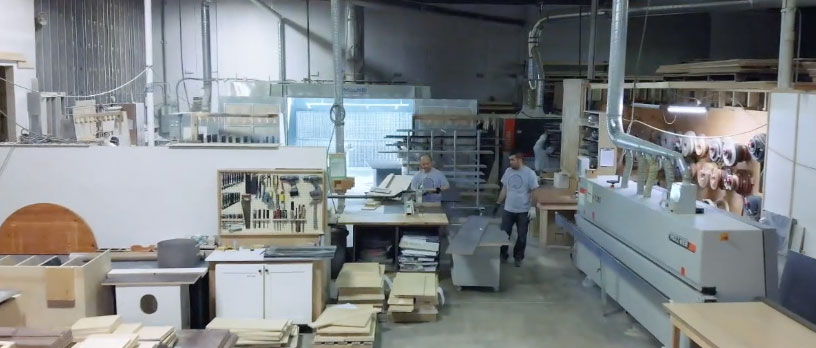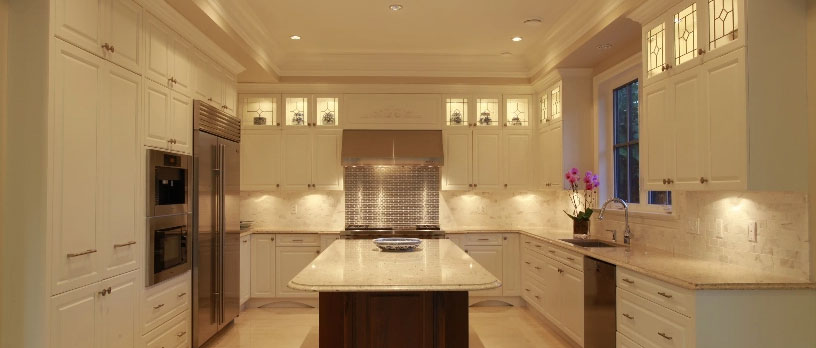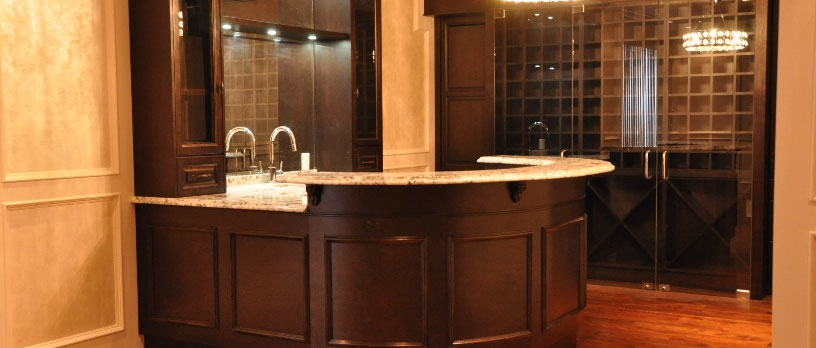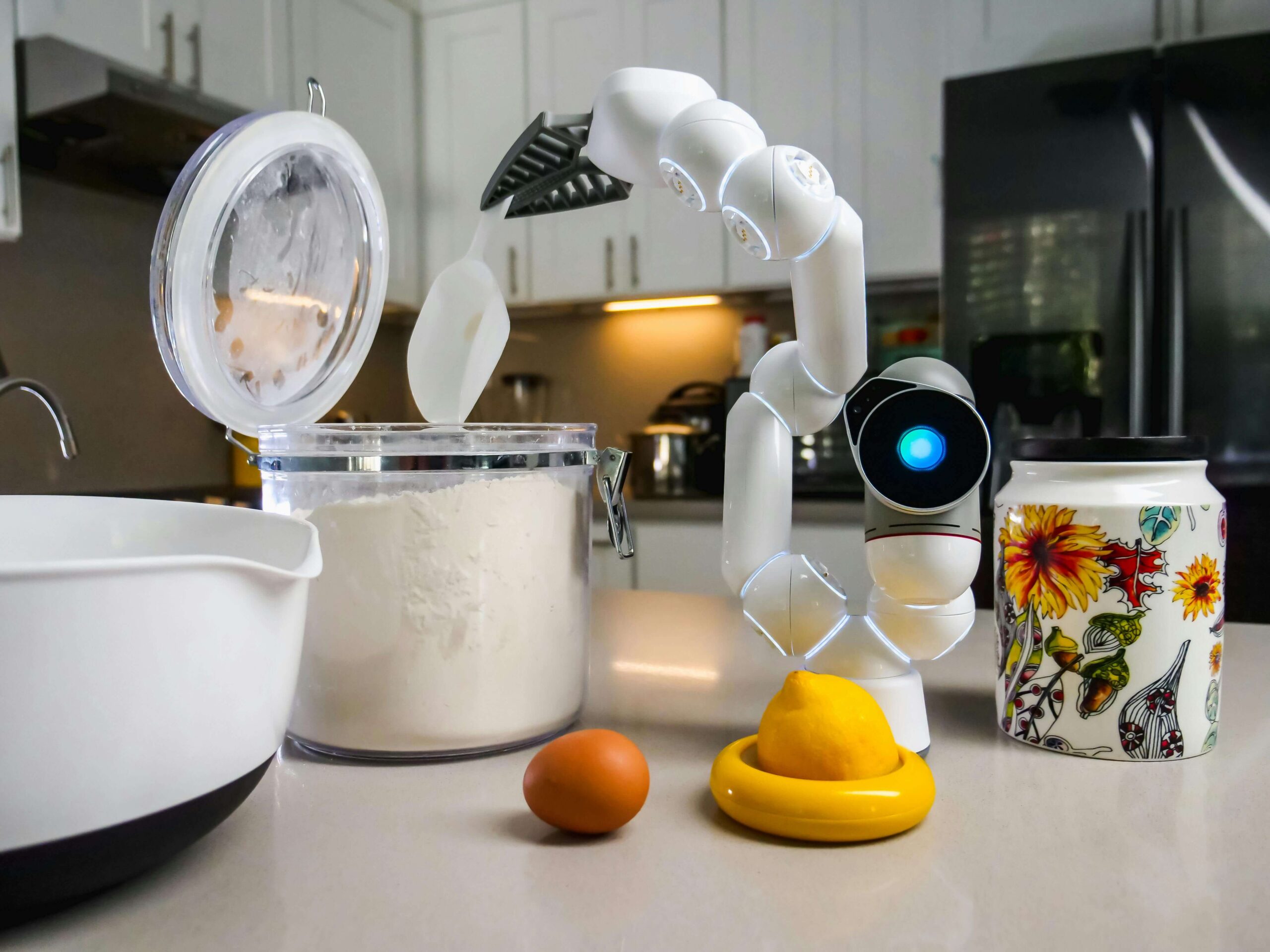The world of home appliances and automation is evolving at an incredible pace. With the rise of AI-powered smart appliances, IoT connectivity, and energy-efficient systems, modern homes are becoming more intuitive, connected, and sustainable. From smart kitchens that anticipate your cooking needs to automated home security and climate control, technology is reshaping how we interact with our living spaces.
In this guide, we’ll explore the latest trends in smart kitchen appliances, the impact of AI and IoT on home automation, and how sustainability is driving the future of energy-efficient smart homes.
Key Takeaways
- AI-powered kitchen appliances are transforming meal preparation, offering precision and convenience.
- IoT technology allows seamless connectivity across devices, enabling a truly integrated smart home experience.
- Sustainable smart appliances are becoming more energy-efficient, helping reduce energy bills and environmental impact.
- Smart devices beyond the kitchen, such as smart thermostats and security systems, are reshaping home automation.
Why Smart Home Technology is the Future
Smart home appliances are no longer just about convenience—they’re designed to improve efficiency, security, and sustainability. The integration of artificial intelligence (AI) and the Internet of Things (IoT) allows appliances to communicate, learn from user behavior, and automate everyday tasks.
Key Benefits of Smart Home Appliances
✅ AI-Powered Precision: Smart ovens and refrigerators adapt to user habits, making cooking and grocery management effortless.
✅ Seamless IoT Connectivity: Appliances can sync with each other, providing a fully automated home experience.
✅ Energy Efficiency: Smart appliances reduce power consumption, cutting energy bills and minimizing environmental impact.
✅ Enhanced Security & Safety: Smart locks, cameras, and sensors offer real-time monitoring and alerts.
Thinking about upgrading your kitchen? Check out high-tech home renovations to discover how smart technology is reshaping modern living.
Latest Innovations in Smart Kitchens
The kitchen is one of the most dynamic areas for technological innovation. With the rise of smart kitchens, appliances are becoming more intelligent, user-friendly, and efficient. These innovations simplify meal preparation and help reduce waste and energy consumption. For those in Vancouver looking to enhance their space, Kitchen Renovation Vancouver offers comprehensive solutions that blend cutting-edge technology with beautiful design, creating the perfect hub for modern households.”
The Rise of AI-Powered Kitchen Appliances
AI-powered appliances are leading the charge in the smart kitchen revolution. From smart ovens that adjust cooking times and temperatures based on the dish to AI-driven coffee machines that remember your favourite brew, these appliances are designed to make cooking more intuitive.
Smart Refrigerators: Your Kitchen’s Brain
Smart refrigerators are no longer just for storing food. They now serve as the central hub of the kitchen, offering features like:
- Built-in touchscreens for managing grocery lists and recipes
- Internal cameras that allow you to check the fridge contents remotely
- Wi-Fi connectivity for seamless integration with other smart devices
These advancements not only make meal planning easier but also help reduce food waste by ensuring you use ingredients before they spoil.
Connected Ovens and Cooking Ranges: Precision Cooking Redefined
Connected ovens and ranges are making it possible to achieve precision cooking like never before. With features like remote control via smartphone apps, voice commands through virtual assistants and automated temperature adjustments, these appliances take the guesswork out of cooking.
Voice-Controlled Kitchen Assistants: Hands-Free Convenience
Voice-controlled kitchen assistants, such as Amazon’s Alexa and Google Assistant, can now operate many smart appliances. From setting timers to adjusting oven temperatures, these voice-activated systems provide hands-free convenience, particularly when multitasking in the kitchen.
In addition to voice-controlled devices, homeowners are also embracing touchless technology for added convenience. If you’re interested in learning more about how touchless faucets are transforming kitchens, check out our previous blog post, Tap into the Future: Hands-Free Kitchen Magic with Touchless Kitchen Faucets, for an in-depth look at the benefits and features of this innovative kitchen technology.
Smart Dishwashers: Energy Efficiency Meets Automation
Smart dishwashers are revolutionizing the way we think about cleaning. These appliances now feature:
- Sensors that detect the dirtiness of dishes and adjust water usage accordingly
- Wi-Fi connectivity for remote control and monitoring
- Energy-saving modes that reduce water and electricity consumption
These features not only enhance convenience but also make a significant impact on household energy savings.
📌 Related Read: Learn how to mix metal finishes in kitchen design to balance tech innovation with aesthetic appeal.
The Role of IoT in Home Automation and Smart Kitchens
The Internet of Things (IoT) is at the heart of smart kitchens and home automation. IoT technology enables appliances to connect, communicate, and share data, creating an integrated ecosystem where devices can work together seamlessly.
How IoT Devices Are Shaping the Future of Smart Kitchens
In a smart kitchen powered by IoT, all devices are connected to a central system, allowing them to function in harmony. For example, your smart oven can communicate with your refrigerator to pull up a recipe based on the ingredients inside, and then send cooking instructions to your connected stove.
The Importance of Seamless Connectivity in Smart Homes
One of the key benefits of IoT in home automation is the seamless connectivity between devices. This allows for:
- Remote monitoring and control of appliances
- Automated workflows, such as starting the oven when you’re 10 minutes from home
- Enhanced energy efficiency, as appliances can adjust their settings based on real-time data
Smart Sensors for Water and Energy Efficiency in Kitchens
IoT-powered sensors are becoming more common in kitchens, helping homeowners save on water and energy costs. For instance, smart sensors can detect leaks or inefficient water usage and notify homeowners instantly, preventing costly damage and waste.
💡 Pro Tip: Want a touch-free kitchen experience? Explore hands-free touchless kitchen faucets to make your space more hygienic and convenient.
Smart Home Appliances Beyond the Kitchen
While the kitchen is a focal point for smart appliances, the impact of home automation extends far beyond. Many other household appliances are benefiting from smart technology, enhancing convenience and efficiency across the entire home.
Smart Thermostats: Controlling Home Climate with Precision
Smart thermostats, such as the Nest Thermostat, allow homeowners to control the temperature of their homes remotely. These devices learn user preferences over time, adjusting the temperature automatically for maximum comfort and energy savings.
Key features include:
- Remote control via smartphone apps
- Energy usage tracking to help reduce utility bills
- Learning algorithms that predict the best temperature settings
AI and Automation in Smart Laundry Appliances
Smart laundry appliances, including washing machines and dryers, are now equipped with AI-driven features that enhance efficiency and ease of use. These appliances can:
- Automatically adjust water levels and detergent usage based on load size
- Offer remote start and monitoring via smartphone apps
- Use sensors to prevent over-drying and reduce energy consumption
Smart Lighting Systems: Creating the Perfect Ambiance at Home
Smart lighting systems, like Philips Hue, offer homeowners complete control over the ambiance of their home. These systems can be programmed to adjust based on time of day, mood, or activity, and can be controlled through voice commands or smartphone apps.
Smart Home Security: The Role of Connected Devices in Protection
Home automation is also transforming home security. Smart security systems now include:
- Wi-Fi-enabled cameras for real-time monitoring
- Smart locks that can be controlled remotely
- Motion sensors and alerts that notify homeowners of unusual activity
These devices provide enhanced peace of mind, as homeowners can monitor their property from anywhere.
📌 Related Read: Discover the most popular kitchen countertops in 2025 to complement your eco-friendly kitchen design.
How AI and Machine Learning Are Revolutionizing Home Automation
Artificial intelligence and machine learning are at the forefront of home automation. These technologies enable appliances to learn from user behaviour and preferences, making homes more responsive and efficient.
AI-Powered Personalization in Home Appliances
Smart appliances are increasingly using AI to personalize their functions based on user habits. For example, AI-enabled ovens can remember how you like your meals cooked and adjust settings accordingly, offering a tailored cooking experience every time.
Predictive Maintenance: The Future of Appliance Repair
One of the most exciting applications of AI in home automation is predictive maintenance. Smart appliances can now monitor their performance and predict when repairs are needed, alerting homeowners before a breakdown occurs.
Example: Many modern refrigerators and washing machines come with diagnostic tools that can detect issues such as a failing compressor or a clogged filter, notifying the user in advance.
How Machine Learning Helps Appliances Learn Your Preferences
Machine learning allows appliances to adapt and improve their performance over time. For instance, a smart thermostat can learn your schedule and automatically adjust the temperature based on your habits, making your home more comfortable and energy-efficient.
Sustainable and Energy-Efficient Smart Appliances
Sustainability is a growing concern for homeowners, and smart appliances are playing a significant role in reducing energy consumption and promoting eco-friendly living. Many smart devices are designed to be energy-efficient, helping households reduce their carbon footprint.
Energy-Saving Features in Smart Kitchen Appliances
Modern smart kitchen appliances are equipped with energy-saving features, such as:
- Sensors that adjust water and energy usage based on load size
- Eco-modes that minimize energy consumption during off-peak hours
- Real-time monitoring of energy use to help homeowners track and reduce their consumption
How Smart Appliances Contribute to a Greener Home
Smart appliances not only save energy but also help reduce waste. For example, smart refrigerators with internal cameras allow users to check their contents remotely, preventing unnecessary food purchases and reducing food waste.
The Future of Solar-Powered Smart Home Devices
The integration of solar power with smart home devices is an emerging trend in sustainable living. Solar-powered appliances are becoming more popular as homeowners look for ways to reduce their reliance on traditional energy sources and lower their electricity bills.
📌 Related Read: Explore smart heated floors to enhance your home’s comfort and energy efficiency.
The Future of Smart Kitchens: What to Expect in the Coming Decade
The next decade promises even more exciting advancements in smart kitchen technology and home automation. As AI, IoT, and energy-efficient technologies continue to evolve, we can expect kitchens to become even more intuitive, responsive, and sustainable.
Trends Shaping the Future of Smart Kitchen Design
Key trends that will shape the future of smart kitchens include:
- Greater integration of AI and machine learning for personalized cooking experiences
- Increased focus on sustainability and energy efficiency
- More seamless connectivity between kitchen appliances and other smart home devices.
As the demand for smart kitchens grows, modern kitchen designs are evolving to incorporate the latest technology and energy-efficient appliances. If you’re planning a new kitchen build or major renovation, services like Custom Kitchen Cabinetry can help you create a space that’s both functional and future-proof, ensuring your kitchen is equipped with the best in smart design.
Autonomous Cooking: The Next Big Thing in Smart Kitchens
Autonomous cooking appliances, such as robotic chefs and automated meal preparation systems, are set to revolutionize the kitchen. These devices can prepare entire meals with minimal human intervention, saving time and effort for busy homeowners.
The Role of 5G in Enhancing Smart Kitchen Connectivity
The rollout of 5G technology will further enhance the capabilities of smart kitchens by providing faster and more reliable connectivity between devices. With 5G, smart appliances will be able to communicate and respond more quickly, improving overall performance and user experience.
📌 Related Read: Check out the future of home appliances to stay ahead of upcoming innovations.
Upgrade Your Home with the Latest Smart Technology
If you’re planning a kitchen renovation, now is the perfect time to incorporate smart technology into your design. From AI-powered refrigerators to energy-efficient dishwashers, the future of home automation is all about convenience, sustainability, and innovation.
🔹 Explore custom kitchen cabinets for a sleek and modern look.
🔹 Learn how open kitchen trends are redefining home design.
🔹 Maximize space with kitchen storage solutions that blend function with style.
Connect with Us for More Smart Home Inspiration!
Stay updated with the latest kitchen technology trends, smart home innovations, and renovation ideas by following us on social media:
📌 Facebook – Discover cutting-edge kitchen designs.
📌 Instagram – Get daily inspiration from our latest projects.
📌 LinkedIn – Connect with industry professionals.
📌 Houzz – Explore high-end home automation solutions.
📌 Google Maps – Visit our showroom and start planning your smart kitchen today!
🚀 Ready to future-proof your home? Contact us today for a smart kitchen consultation!






